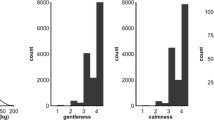Abstract.
The dramatic competitive advantage of the African honey bee over European bees in the neotropics comes in large part from their faster rates of colony growth and reproduction. In honey bees, brood production, and thus colony growth, are controlled by the workers. Thus, we tested for genetic differences between African and European workers in their preference for tasks associated with brood production by monitoring individual African and European workers cross-fostered in common colony environments. We additionally examined differences in the age of transition between tasks (age polyethism). Our data provide strong evidence for genetically based differences in a subset of tasks. African workers were more likely to collect and process pollen, the nutrient source for brood. They initiated pollen foraging at a younger age, but this result was not significant after Bonferroni adjustment. African and European workers showed no difference in brood-care task performance, and did not vary in the age at which they performed brood-care tasks. These data suggest that a significant part of the competitive advantage of this major invasive pest can be traced to a small subset of worker behaviors, those involving resource intake.
Similar content being viewed by others
Author information
Authors and Affiliations
Additional information
Electronic Publication
Rights and permissions
About this article
Cite this article
Fewell, J.H., Bertram, S.M. Evidence for genetic variation in worker task performance by African and European honey bees. Behav Ecol Sociobiol 52, 318–325 (2002). https://doi.org/10.1007/s00265-002-0501-3
Received:
Revised:
Accepted:
Issue Date:
DOI: https://doi.org/10.1007/s00265-002-0501-3




